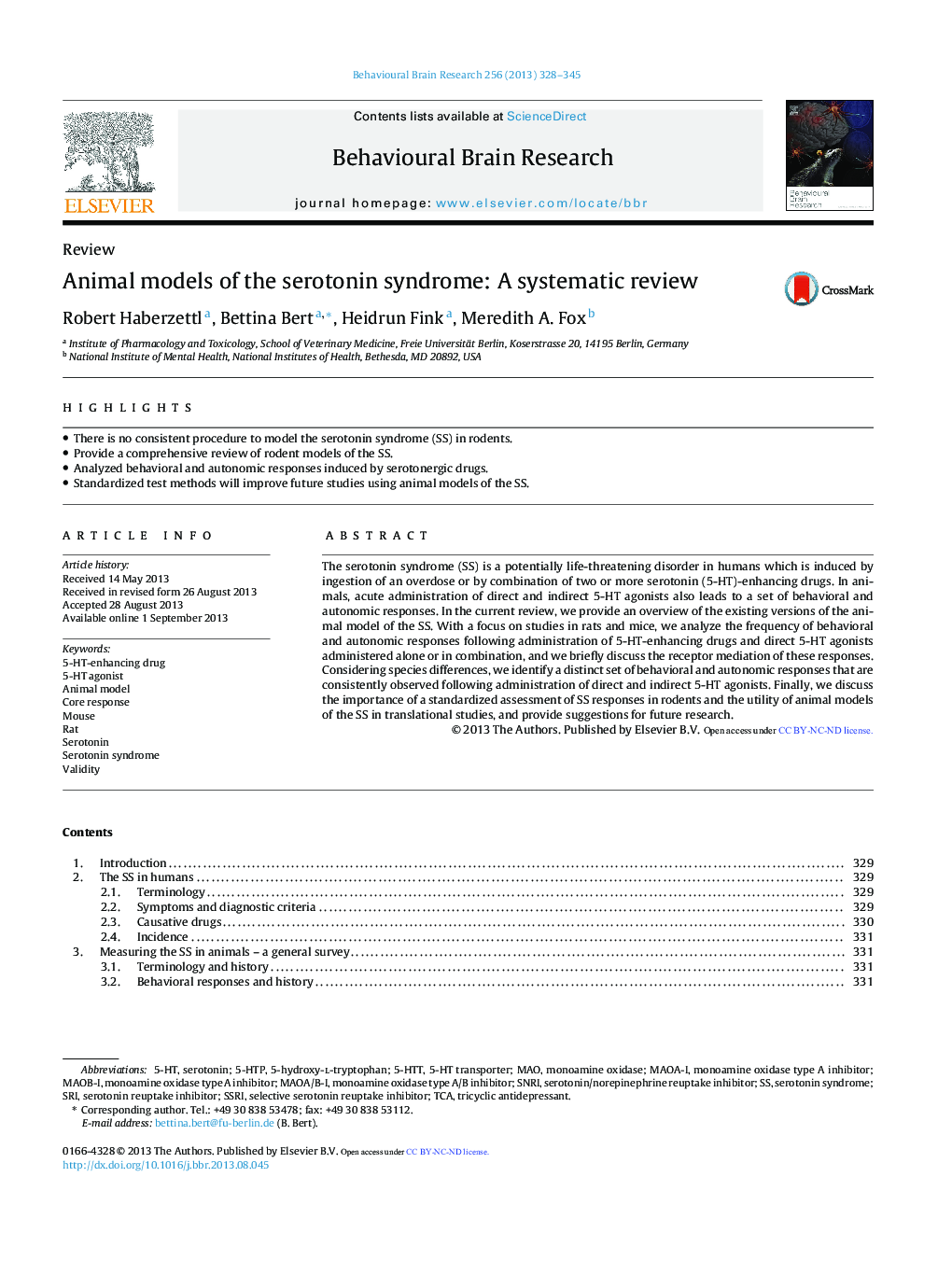| Article ID | Journal | Published Year | Pages | File Type |
|---|---|---|---|---|
| 6258730 | Behavioural Brain Research | 2013 | 18 Pages |
â¢There is no consistent procedure to model the serotonin syndrome (SS) in rodents.â¢Provide a comprehensive review of rodent models of the SS.â¢Analyzed behavioral and autonomic responses induced by serotonergic drugs.â¢Standardized test methods will improve future studies using animal models of the SS.
The serotonin syndrome (SS) is a potentially life-threatening disorder in humans which is induced by ingestion of an overdose or by combination of two or more serotonin (5-HT)-enhancing drugs. In animals, acute administration of direct and indirect 5-HT agonists also leads to a set of behavioral and autonomic responses. In the current review, we provide an overview of the existing versions of the animal model of the SS. With a focus on studies in rats and mice, we analyze the frequency of behavioral and autonomic responses following administration of 5-HT-enhancing drugs and direct 5-HT agonists administered alone or in combination, and we briefly discuss the receptor mediation of these responses. Considering species differences, we identify a distinct set of behavioral and autonomic responses that are consistently observed following administration of direct and indirect 5-HT agonists. Finally, we discuss the importance of a standardized assessment of SS responses in rodents and the utility of animal models of the SS in translational studies, and provide suggestions for future research.
